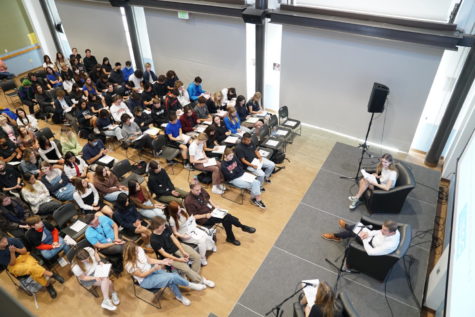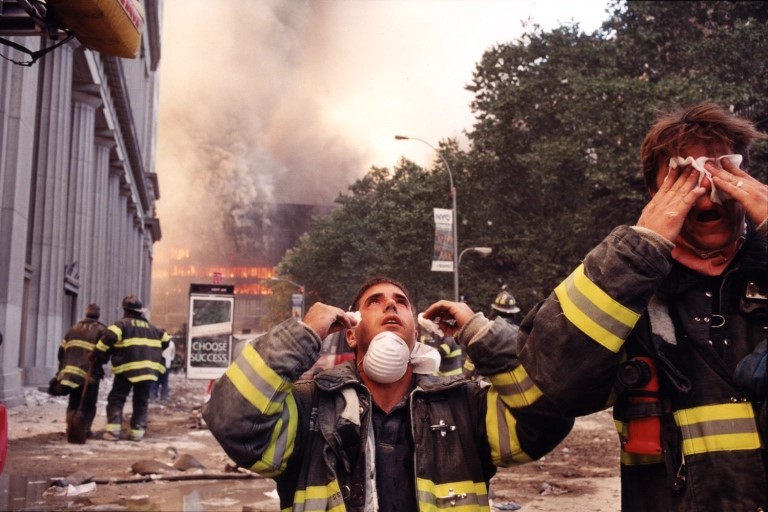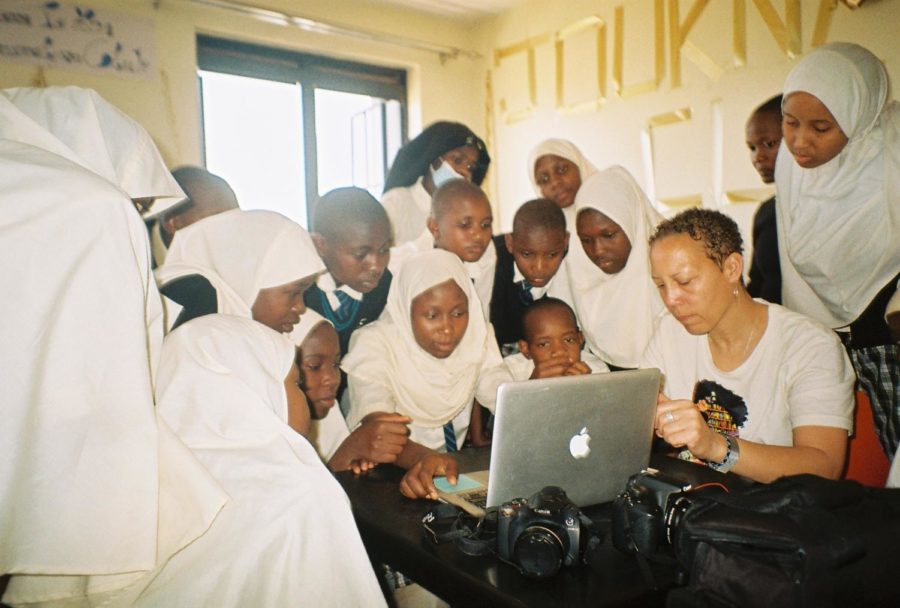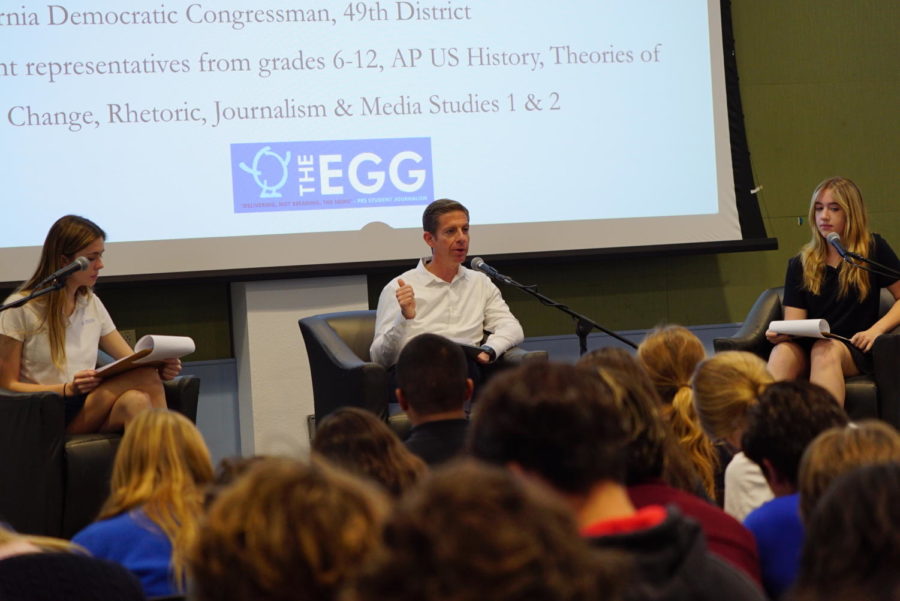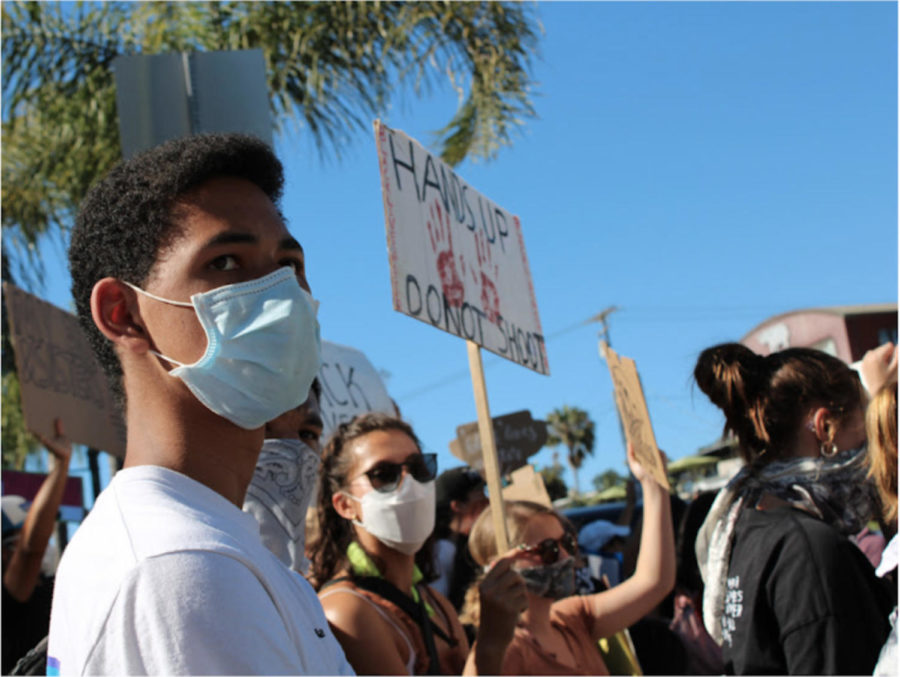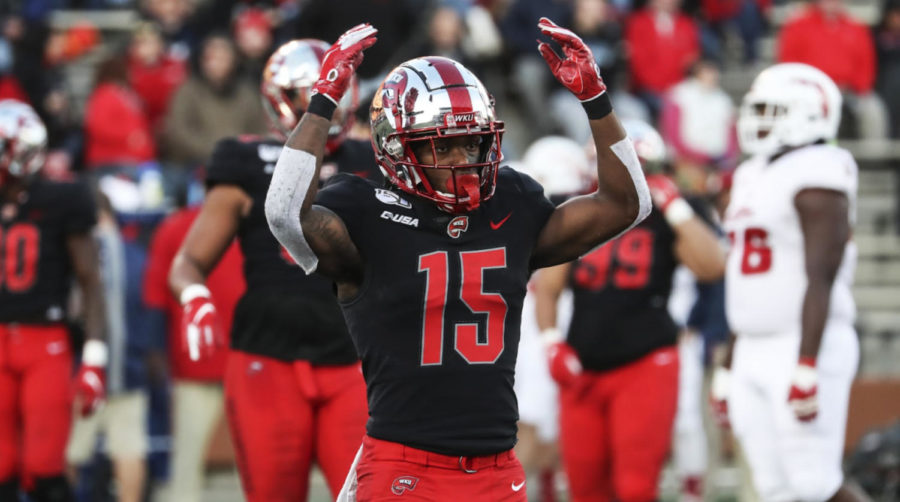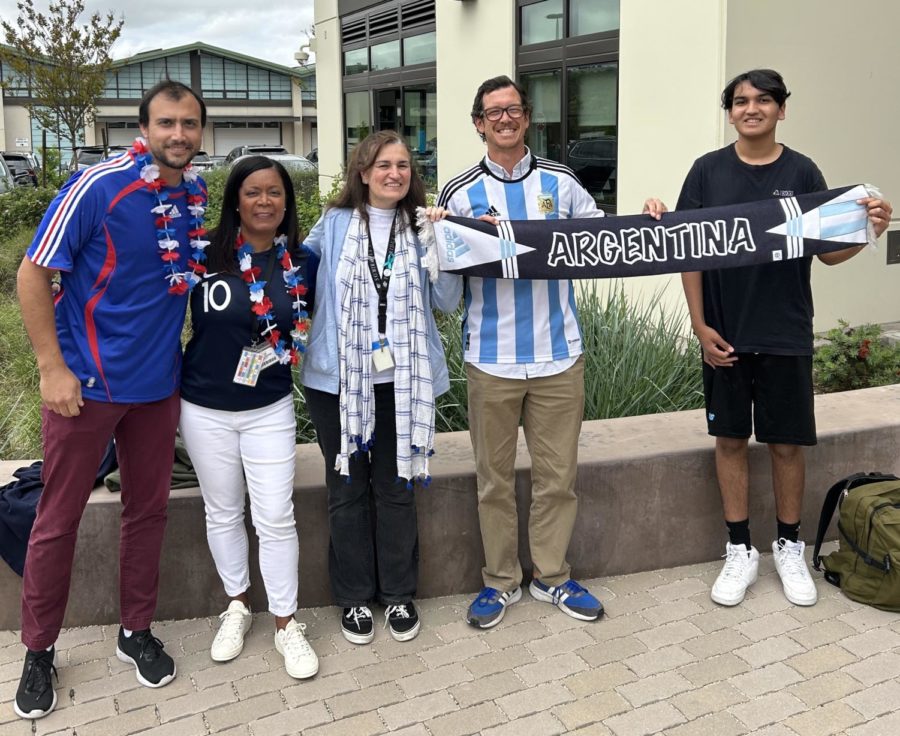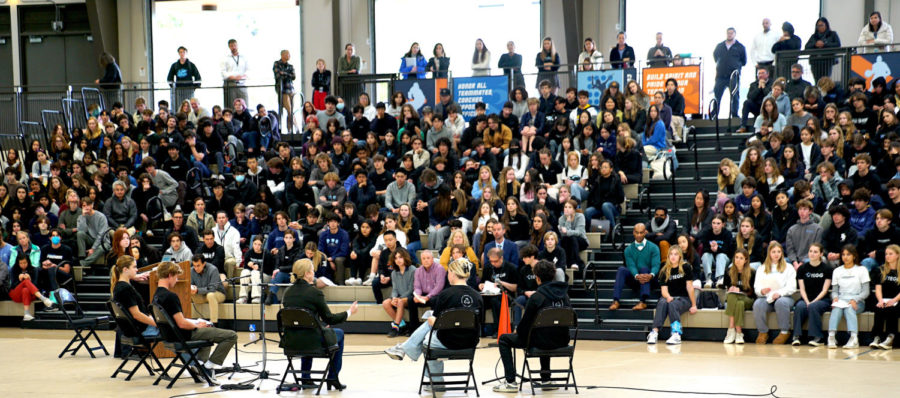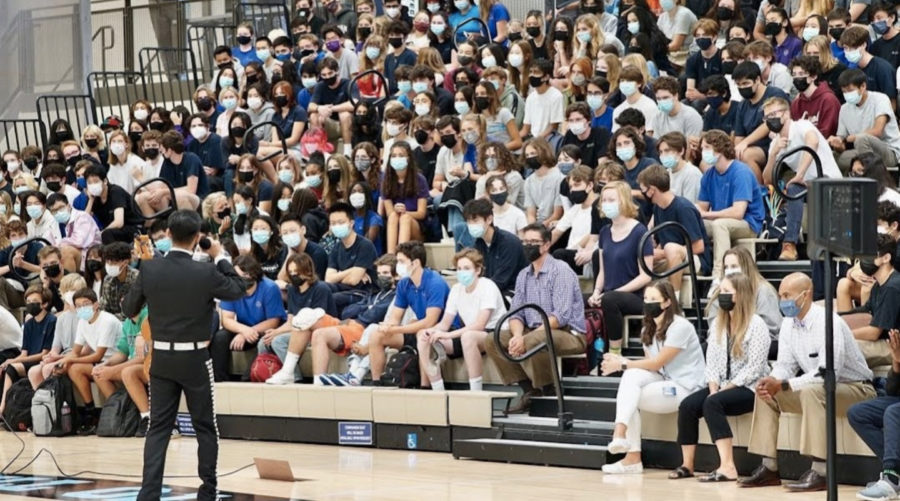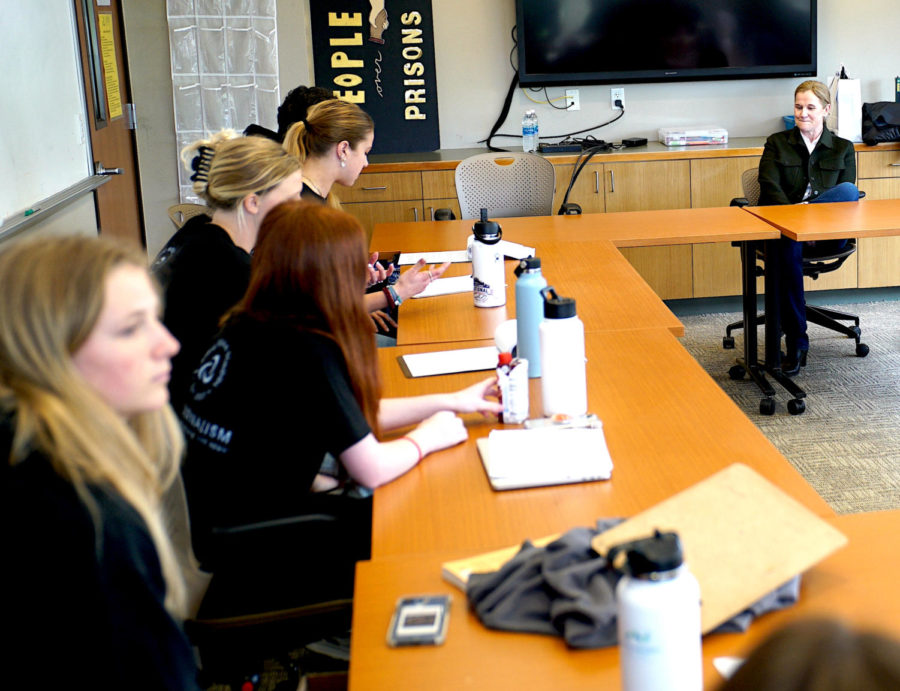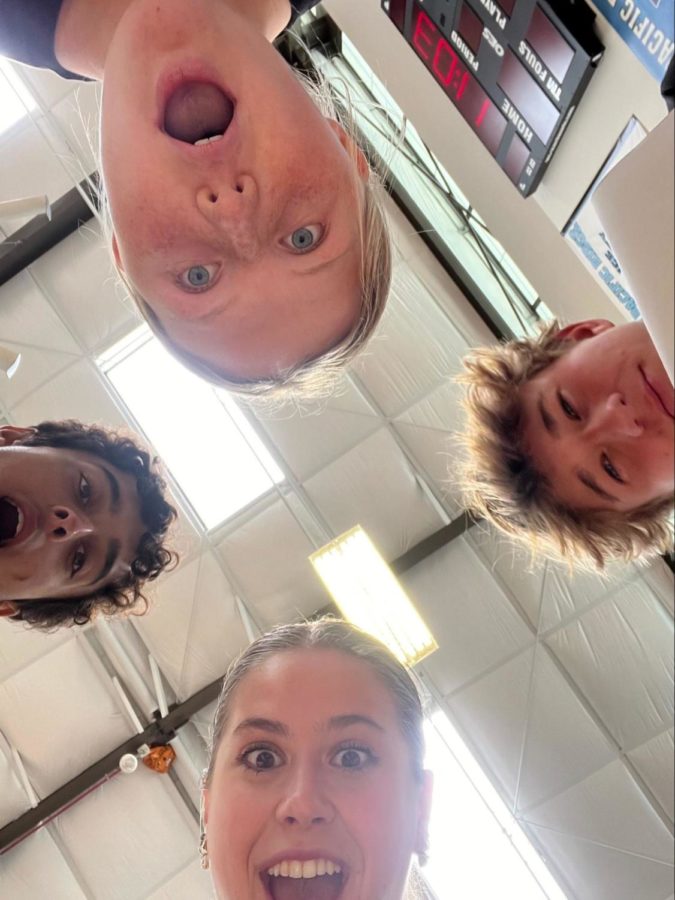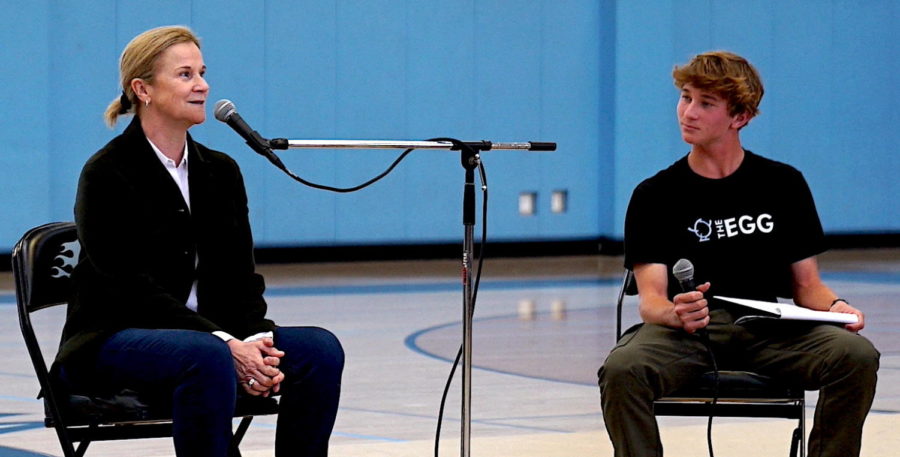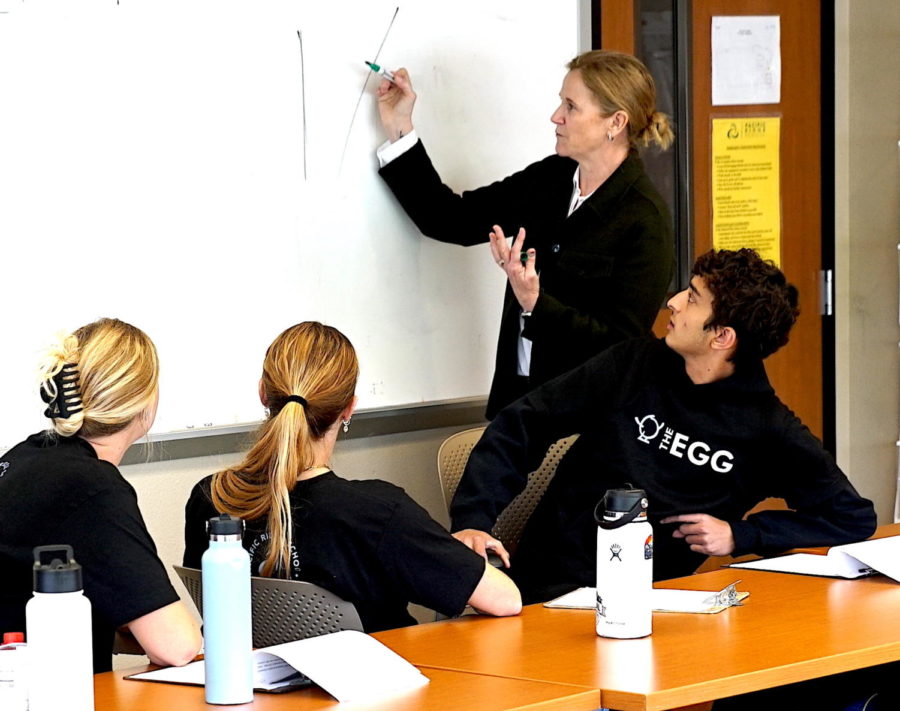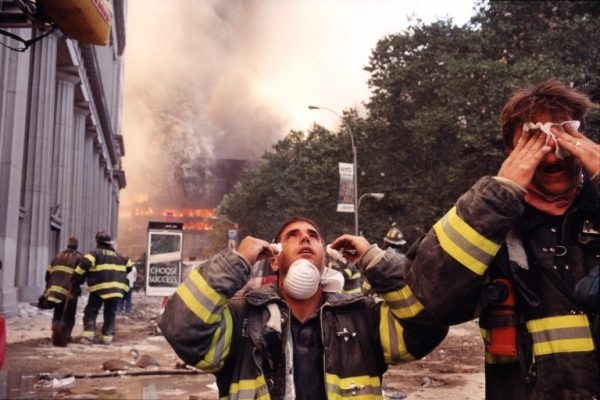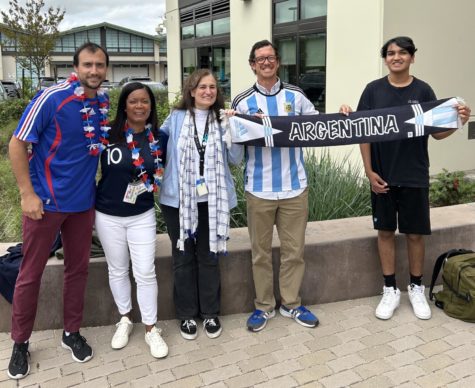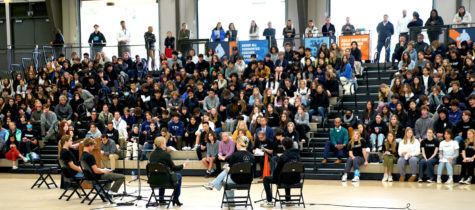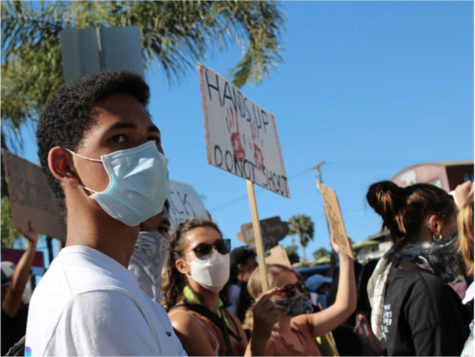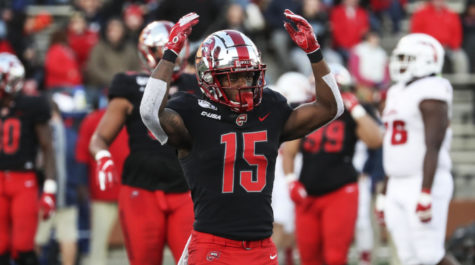13 Questions for Mike Levin
Students from grades 6 to 12 asked Mike Levin about the issues most on their minds ahead of the 2022 elections.
Mike Levin (House Rep. CA 49th District, Dem.) interviewed for The Egg by Reese Walsh (’23) & Liz Thacker (’23).
Around 100 students and faculty met with Mike Levin, our district’s member of the US House of Representatives, on campus in the East Reading Room on Monday, October 31st. The event was hosted by student journalists from The Egg, in partnership with students from the Theories of Social Change classes. Grades 11 and 12 students from AP US History, Rhetoric & Communications and French 4 also attended, along with representatives from grades 6 to 10. In total, students from 13 different classes and grade level groups asked questions of Mr. Levin based on schoolwide polls and focus groups conducted to identify the issues our PRS student body most wanted Mr. Levin to address in this forum on government and society.
Mr. Levin (Democrat) is currently running for reelection to the House of Representatives, seeking a third term. His opponent, Mr. Brian Maryott (Republican), had accepted an invitation to speak with PRS students in a parallel forum the following day, but unfortunately had to cancel due to scheduling conflicts in this highly competitive election race for California’s 49th District. However, PRS has assured both Mr. Maryott and Mr. Levin that the door is always open at PRS to both of them for future conversations with students.
Below are the 13 questions that our students asked Mr. Levin, followed by a link to each of his answers to those questions. To ensure accuracy, Mr. Levin’s answers have been transcribed from an audio recording of the event.
1. “What specifically can you do to prevent the negative effects of climate change locally and globally?”
Mr. Levin’s reply to question #1.
2. “Though air pollution is highly regulated in California, environmental policy as a whole is not protecting all communities in an equal way in California or around the US. Low income and non-white communities are experiencing pollution disparity and environmental inequality. What actions are you currently taking or do you plan to take to have a more just future for all on this issue?”
Mr. Levin’s reply to question #2.
3. “How can you reconcile being a strong advocate for the environment with the way so much paper is being used to send direct mail to residents of the 49th District in connection with your election campaign?”
Mr. Levin’s reply to question #3.
4. “Besides the Federal Reserve Bank raising interest rates, how do you suggest we combat inflation without sending the economy into a downward spiral and especially hurting low-income households?”
Mr. Levin’s reply to question #4.
5. “What can you do to reduce the level of homelessness in the 49th District and the nationwide shortage of affordable housing?”
Mr. Levin’s reply to question #5.
6. “With the recent overturning of Roe v. Wade by the Supreme Court, how would you respond as a Congressional representative if the Republicans gain control of the US Congress and attempt to legislate a national ban on abortion?”
Mr. Levin’s reply to question #6.
7. “According to Forbes magazine, the average annual cost of attendance to a four-year college/university has risen from $10,231 in 1980 to $28,775 in 2020, while, at the same time, earnings for workers between the ages of 22 and 27 have increased by only 19%. This sharp rise in costs has created additional barriers to higher education for millions in this country, while also fueling a nearly insurmountable student loan crisis. What do you think should be the role of the federal government in controlling these high costs, and what will you do to help more Americans access higher education?”
Mr. Levin’s reply to question #7.
8. “What do you think are the best ways to reduce school shootings in the US and what can you do as a Congressman to make that happen?”
Mr. Levin’s reply to question #8.
9. “How far should the US go, in terms of both financial and military support, to help Ukraine fight against the invasion by Russia?”
Mr. Levin’s reply to question #9.
10. “Should the US increase the number of permanent resident visas it issues to immigrants each year? And why or why not?”
Mr. Levin’s reply to question #10.
11. “Given the ongoing price rises of health insurance, and the fact that medical bills continue to be one of the top causes of personal bankruptcy in the US, how do you plan to increase accessibility to affordable healthcare for all?”
Mr. Levin’s reply to question #11.
12. “We already are having blackouts of the electricity grid in California, including in the 49th District, so how realistic is it to expect that we can move all motor vehicles in the state away from gasoline to electric power in the next 13 or even 20 years? And what would it take to do that nationally?”
Mr. Levin’s reply to question #12.
13. “Schools have become a battlefield in the culture wars of American society. What are your views on the debates about Critical Race Theory and book banning in American schools?”
Mr. Levin’s reply to question #13.
Mike Levin was interviewed onstage for The Egg by PRS journalism students, Reese Walsh (’23) and Liz Thacker (’23), then Erick Maganda (’23) and Sammy Weitz (’23).
